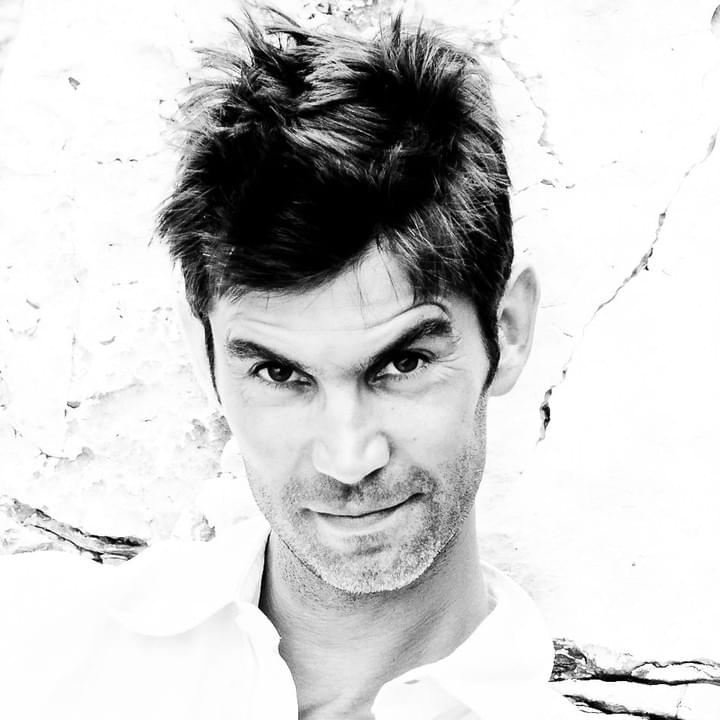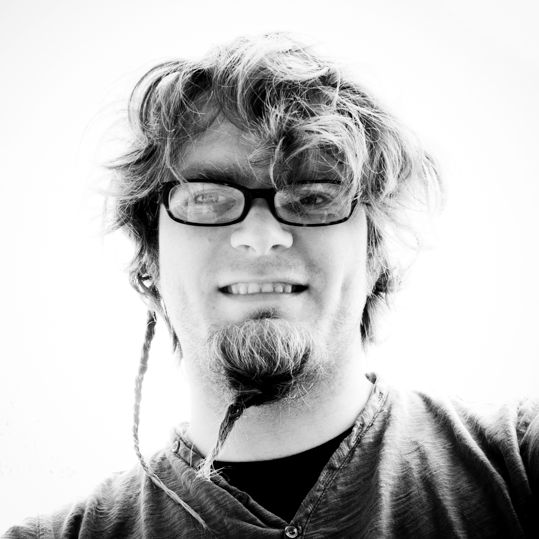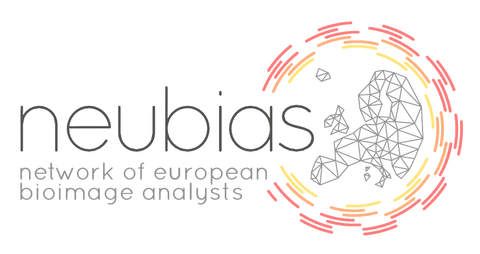
ZIDAS 2024 - Zurich
23rd - 28th June 2024
We are happy to announce that this year's edition will be in person in Zurich. We are looking forward to an interesting and inspiring week of bio-image analysis.
Best regards from the
Organizing team
- Sign Up!
(if you want to receive an email from us once we have fixed the date for the next edition)
About the School
An intensive summer-course in image analysis for life-scientist.
Using open-source tools and emphasising reproducibility.
The What, Who, and Why
What it is: A focused one-week school providing hands-on introductions to image processing and analysis, with priority given to biologically relevant examples. Students learn the fundamentals of image analysis, including basic macro programming in ImageJ/Fiji as well as other software solutions. By the end of the course all students have practical working knowledge of how to attack image analysis problems.
Content: 1) Lectures on image processing interspersed with hands-on demonstrations and exercises. 2) Special topics: Machine learning, Super-resolution, stitching, high-volume data, deconvolution, co-localisation, tracking, image-ethics. 3) Hands-on experience: Students are expected to bring their own data and try out the presented tools with the help of the trainers. 4) Talks: Invited speakers, from Switzerlnad and beyond, presenting work that requires image analysis.
Participants: The target group is from the life-sciences: PhD and master students, staff scientist, postdocs, and professors, from Switzerland and beyond. As funding allows, a few travel grants will be made available for external participants. Overall 25 students accepted to allow effective tutoring.
Teachers: Didactically outstanding trainers from e.g. ETH Zurich, EPFL, Biozentrum and FMI Basel, University of Basel, EMBL Heidelberg, MPI-CBG Dresden, University College London, University of Edinburgh, IBMP-CNRS Strasbourg, Uni Carlos III Madrid, SciLifeLab Uppsala, and the wider NEUBIAS. Speakers will be invited from across Switzerland and Europe.
Motivation & Background: There is a continued need for researchers in the life sciences to know how to handle their image data and this is typically not covered in their curricula. This school addresses this need.
History (name change):
- 2017-2019: Zurich Image and Data Analysis School.
- 2020 onwards: SwitZerland's Image and Data Analysis School.
About the School
This school provides a hands-on introduction to image processing and analysis, with an emphasis on biologically relevant examples
Is this school for you?
- Are you a life-science researcher with a pressing need to quantify your light-microscopy images?
- Are you uncertain about how to: Best calculate co-localisation, do deconvolution, automate the counting of cells, track objects over time, handle massive amounts of image data, record your image-analysis work-flows in a reproducible manner?
- If you answered yes to some of the above, then this school is for you!
Motivation
Digital images of high quality and quantity are now the norm in biomedical sciences. Ten to twenty years ago, when many current professors trained as students or post-docs, this was not yet the case as most microscopes were, at best, equipped with low-resolution digital cameras, celluloid-film (analogue) cameras, or no camera at all.
This rapid change is rarely reflected in the curricula of life-science university departments and they offer few, if any, courses in image processing and analysis. Understandably, courses in image-analysis (computer-vision) in the computer-science departments tend to have different aims, work on different image-data, and pre-suppose literacy in at least one programming language, rendering them all but irrelevant for the life-scientist working in the laboratory.
To bridge this gap, between what the life-scientist needs and what courses he/she is normally offered, we have created this school for image analysis. No former experience with programming is assumed, nor will much indeed be needed; only a strong desire to learn what can be done and how to do it is required.
What you will learn
You will learn the fundamentals of image analysis, including basic macro programming in ImageJ/Fiji as well as other software solutions.
In the first part of the week we will also cover the process of image-formation as it pertains to image analysis: Resolution, correct exposure, point-spread functions, detector noise, Shannon's sampling theorem, and aliasing. All with a clear focus on application in the lab.
In the second half of the week there will be a number of focused topics, building on what was learnt during the first days, possible topics are:
- Deep Learning for image restoration and segmentation
- Co-localisation, i.e., spatial correlation analysis and statistics
- SMLM (Single-Molecule Localisation Microscopy) data analysis
- De-convolution of microscopy images
- Tracking of particles and cells in time-lapse recordings
- Stitching and registration of stacks of large image data
- Hands-on training with image-analysis software solutions such as ilastik and CellProfiler
Structure of the school
You will be working actively with image-analysis software every day -- this is an interactive hands-on school, not a passive lecture series. Short introductions are followed by guided work-flows that we step through together. You can and should ask questions at any time throughout.
There will be several invited lectures, alternating between scientists using image-analysis as an integral part of their biomedical research and researchers developing new image-analysis algorithms and software.
You will have the chance to work on your own data, that you brought from home, throughout the week, with support from the trainers.
Printed material as well as online material will be made available for all the modules.
Factoids
- We will accept 25 participants --- this number is kept low to facilitate effective tutoring.
- The school takes place in Zurich
- You will need to bring your own laptop (let us know if this is not possible for you)
- Participation is only possible for the entirety of the school
- A small number or travel grants and fee-waivers are available, mainly for non-Swiss people
- PhD students can earn two ECTS points from the school
- Lunch will be provided, other meals are up to you
- Travel and accommodation arrangements are your own responsibility
Previous Editions
Links to webpages from former schools, with program, trainers, speakers, etc
Intranet
If you are participant, here you can find additional information
October 9, 2017- Anyone can apply - irrespective of affiliation, position, or location!
Not yet accepting applications (patience)!
Trainers
With backgrounds in biology, computer science, and physics and extensive teaching experience across the disciplines

Speakers
Invited (alphabetical)
- Damian Brunner, University of Zurich, Switzerland
- Karsten Weis, D-BIOL, ETH Zurich, Switzerland
Confirmed (alphabetical)
- Anna Kreshuk, University of Heidelberg, Germany
- César Nombela-Arrieta, University Hospital, Zurich, Switzerland
Speakers
Scientists using or developing image analysis methods in their research

In our studies we combine modern real-time fluorescence imaging of the living organism with classical genetics, molecular biology, biochemistry and biophysics approaches. Quantitative data analysis is a central tool that we use to describe the dynamics and behaviour of our cellular systems in the wild type and in mutants. Where possible we use these quantitative data to develop mathematical models, which we can use for further “in silico” exploration of the mechanisms driving the system. Consequently, many of our projects are highly collaborative and interdisciplinary.

I am interested in automating large-scale analysis of 3D Electron Microscopy volumes of neural tissue. Methodologically, this amounts to machine learning-based image processing. In particular, I am currently working on the introduction of higher-level priors into neuron segmentation algorithms. Previously, I did some research on synapse detection and segmentation and this topic is still of great interest to me.

Our lab is interested in studying how the heterogeneous constituents of mammalian bone marrow (BM) tissues are structurally and functionally interconnected to work as a single finely-tuned, sophisticated and versatile functional unit.

My research focuses on developing computational methods for analysing medical images. The goals are to
- extract semantic information,
- perform quantitative measurements and
- perform population comparisons
to aide diagnosis, treatment and clinical research.
Speakers
Invited (alphabetical)
- Sebastian Kozerke, D-ITET, ETH Zurich, Switzerland
- Ender Konukoglu, D-ITET, Zurich, Switzerland
- Gregory Paul, D-ITET, Zurich, Switzerland
Confirmed (alphabetical)
Course Organisers
University and ETH Zurich
Advisory Board
Zurich Image and Data Analysis School
Managing Director
ETH Zurich
Scientific Center for Optical and Electron MicroscopyTechnical Director - Light microscopy & screening
ETH Zurich- Calendar
Here you can check what is on the menu!
Social Feed
Check out our latest updates!
Connect With Us
Something unclear? Let us know!
© 2017-2022







































